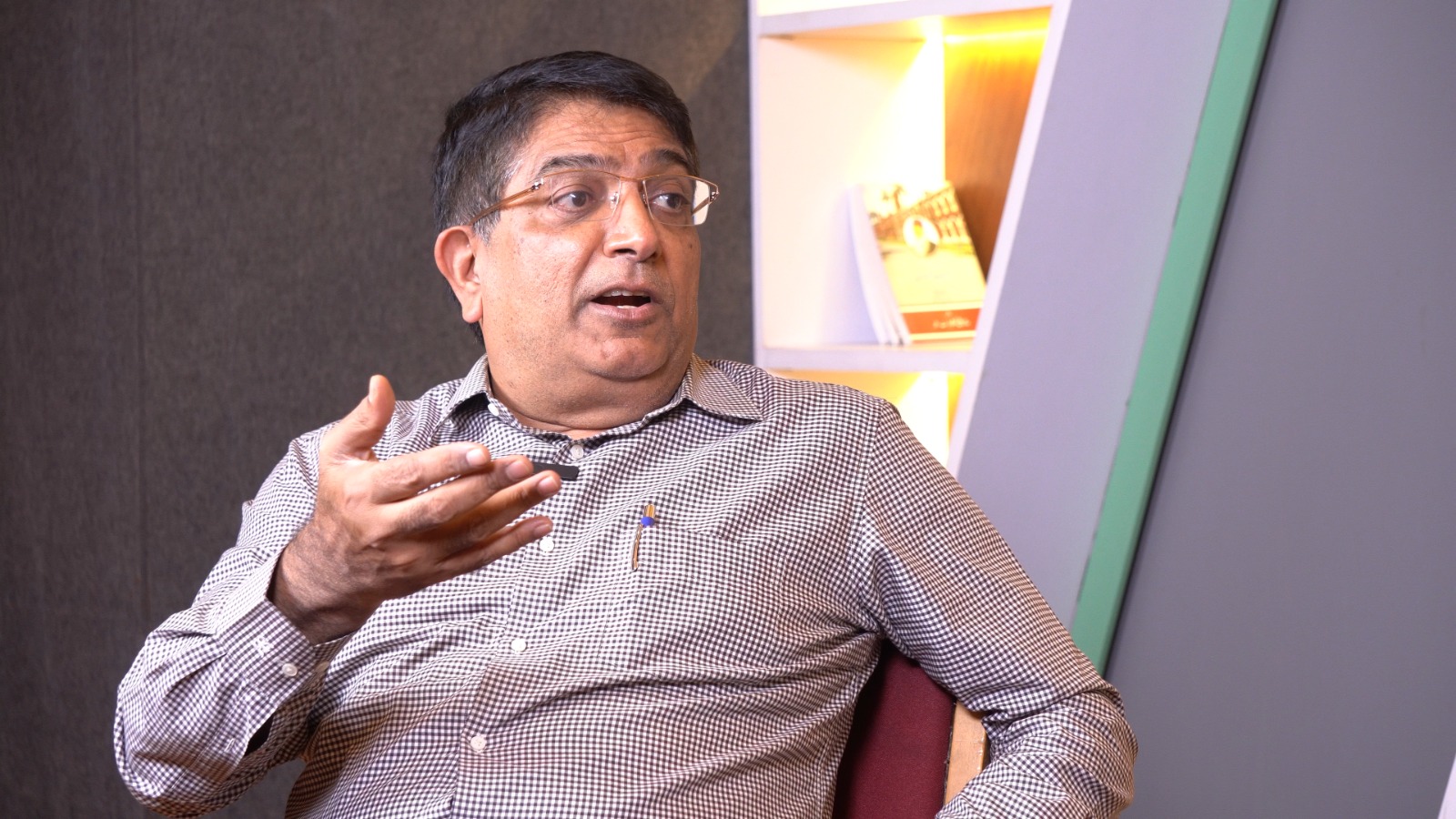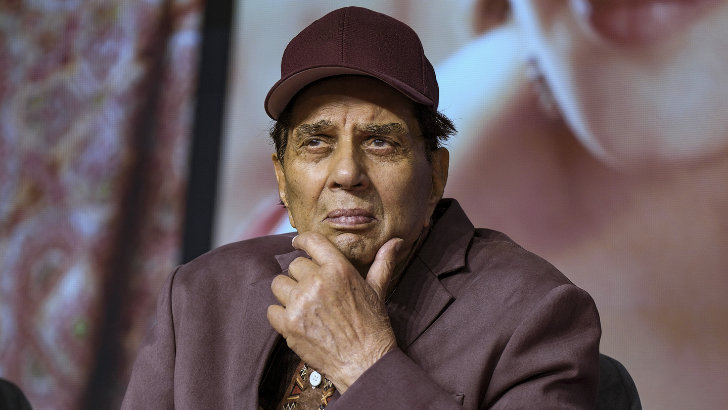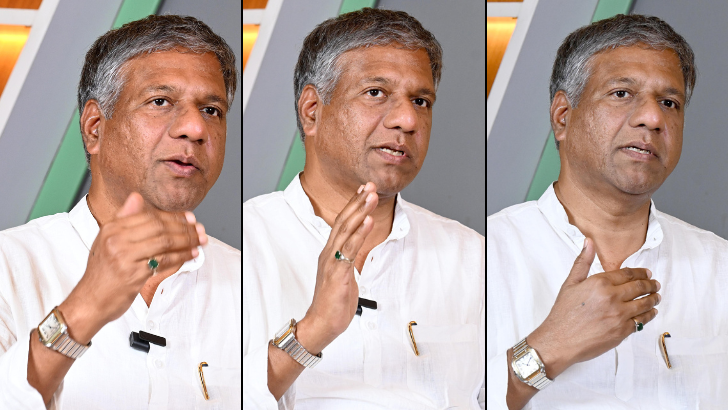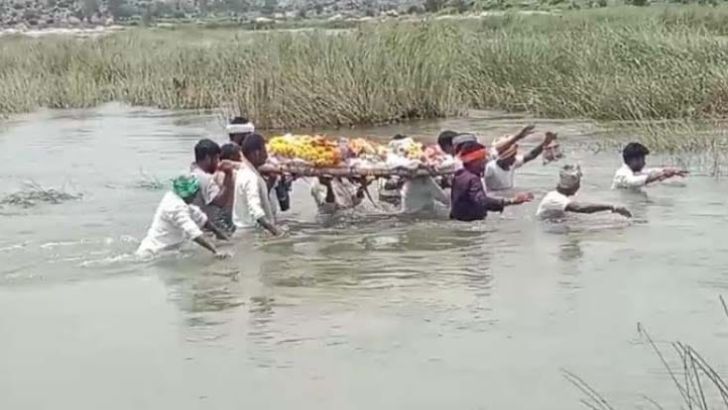Kalyana K’taka cries for govt relief as sun batters regions
This comes as Telangana government gives Rs 4 lakh aid to families of heatwave victims.
-
Photo: Salar News
Bidar/Kalaburagi, 15 May
Kalyana Karnataka
region is in the grip of a severe and unprecedented heatwave, prompting citizens,
activists and lawmakers to urge the State government to declare the region a “state-specific
disaster” zone.
In April, the
Karnataka State Natural Disaster Monitoring Centre (KSNDMC) reported alarming temperatures:
Bidar peaked at 45°C, the highest in the State. The highest temperature
recorded in Bidar’s was 43°C in 1931.
Yadgir was the
second hottest in the State at 44.6°C, followed by Kalaburagi at 44°C and
Raichur at 43°C. Over three weeks, Kalyana Karnataka residents have endured a
daily average of 44°C, with no respite in sight.
Karnataka’s
neighbour Telangana, which is also facing as hot as a furnace, has already
declared several districts as “state-specific disaster” zones. Telangana has
announced Rs 4 lakh in compensation to families of those who die due to
heatstroke. Now, locals in Kalyana
Karnataka are demanding that the Karnataka Congress government follows suit.
Salar News attempted to contact the District In-Charge
Minister and Minister for Forest, Zoology and Environment Eshwar B Khandre
,Rahim Khan Minister For Muncipal Administration and HAJJ Government of
Karnataka, Rural Development and Panchayat Raj Minister and Kalaburagi
In-charge Priyank Kharge, and Dr Ajay Singh, Chairman of the Kalyana Karnataka
Region Development Board (KKRDB), regarding the 'state disaster' declaration
for heat waves, but our calls went unanswered.
Salar News contacted (District In-Charge Minister and Forest Minister Eshwar B Khandre, Minister for Municipal Administration and Hajj Rahim Khan, Rural Development and Panchayat Raj Minister Priyank Kharge and Kalyana Karnataka Region Development Board Chairman Ajay Singh to seek their response on declaring the heatwave a state-specific disaster. However, none responded to calls or messages.
Public health, livelihoods and water in crisis
The intense heat has devastated daily life, triggering
health emergencies, water shortages, and agricultural decline. Vulnerable
communities — particularly daily wage workers, farmers, labourers, and sheep
herders — are at the mercy of the relentless sun.
Savitri, who heads a women welfare cooperative
society in Bidar, told Salar News, “Daily
wage workers and herders can’t afford to stay indoors. They risk heatstroke
just to survive. The government must provide Rs 4 lakh compensation to families
of victims, just as Telangana.”
The Joint Secretary of Bidar’s Janavadi Mahila Sangathan District Co-operative Society in Bidar added that those “sitting in air-conditioned rooms must not ignore those toiling in this oven-like heat”.
Despite the heat, water and first aid are not easily
accessible to labourers.
The villagers from Bhudera fume over the lack of basic amenities under the
Mahatma Gandhi National Rural Employment Guarantee Act (MGNREGA), including
water, shade, and first aid. Daily wage workers Premila and Aleema blamed the
Public Development Officers (PDOs) for failing to provide such basic amenities.
However, Kalaburagi Deputy Commissioner Fauzia Taranum told Salar News, “Officials have been instructed to ensure that all necessary facilities, including shade, water, and medical aid, are made available to those in need.
Deforestation to be blamed
Vinay Kumar Malge, State Wildlife Board member, explained that
the proximity to heat-prone regions such as Telangana and Maharashtra, combined
with high-pressure systems, makes it hotter. “Extended dry spells reduce soil
moisture and vegetation cover, turning land into a heat-absorbing surface,” he
said.
“Declaring Bidar a state-specific disaster zone is not
mandatory, but the government should prioritise public relief and be ready to
declare a disaster zone if conditions worsen. Public buildings should be
painted white to reflect heat, and shade and water facilities must be expanded,”
he added.
Basavaraj Biradar, an Agriculture Assets Technical Officer, blamed
deforestation for the unrelenting heat. “Tree-cutting for urbanisation is
drying up land and intensifying heat. The consequences of deforestation are
severe. It leads to soil erosion, loss of biodiversity, and increased
temperatures. The region is already experiencing extreme heatwaves, and
deforestation is only exacerbating the problem."
Government’s awareness drives
Bidar Deputy Commissioner Shilpa Sharma told Salar News the
administration is launching public awareness campaigns to educate residents
about heat safety, including staying hydrated, avoiding exertion during peak
hours, and recognising signs of heatstrokes. “We are working to ensure
essential facilities are accessible to all,” Sharma said.
AC helmets for traffic cops
The Kalaburagi police have introduced air-conditioned helmets and masks to protect traffic officers from extreme temperatures and poor air quality. Police Commissioner Sharanappa SD announced that 10 AC helmets were issued on a pilot basis, with more to follow.
MLAs and officials demand urgent relief
The demand for formal disaster recognition is gaining
momentum across the political spectrum. Bidar South BJP MLA and State Secretary
Shailendra Beldale has called for the immediate release of Rs 1 crore per Assembly
constituency, totalling Rs 6 crore for Bidar district, to combat acute water
scarcity in over 100 residential areas.
Humnabad BJP MLA Siddalingappa Patil supported the call:
“Telangana has set a good example. Karnataka must also recognise heatwaves as
state-specific disasters. People are crying out for help. The Congress
government must respond with urgency. It’s time for action, not just words.”
Although Congress MLAs are yet to issue a statement, Taranum
told Salar News that the government has urged the public to take necessary
precautions during heatwave.
What is a 'state-specific disaster'?
If the government declares Kalyana Karnataka a state-specific disaster
zone, the following would be enabled:
- Ex-gratia
compensation to families of heatstroke victims.
- Allocation
of emergency funds for relief.
- Enhanced
disaster management and early warning systems.
- Deployment
of mobile health units and installation of water and shade points.
- Long-term
mitigation schemes, including heat-resistant infrastructure.
The plight of workers
I’ve been working in
construction for over 15 years, and summers are the hardest. We start by 9am
and rest an hour in the afternoon, but it’s not enough. We bring water from
home, but it gets hot quickly. There’s no first-aid or medical help if someone
falls sick
-Basavaraj Halladakeri, a labourer from Bidar
We work under the blazing sun from
morning till 5.30 pm with no proper breaks or protection. The heat is making us
sick, but we have no choice—our wages are barely enough to survive or care for
our families
-Sangeeta, a construction labourer from Bidar
The heat is unbearable. I
have two cows and a buffalo, and it’s hard to find grass or water for them. I
bring them home by afternoon to protect them. If any of them die from the heat,
the government must give us compensation
-Siddu Pathedar, a farm worker from Yadgir
Farmers in villages such as Yakshinthi,
Gaudur, Tonnur, Kollur, Hayyala, Biikura, Anasur, Gondenur, Konkal, Tumakuru
and others are losing crops to this unbearable heat. Rice, sugarcane,
vegetables—all are drying up
-Ningappa Karadi, a farmer from Shahapur in Yadgir
Working with burning stones under the scorching sun leaves us dehydrated—we keep drinking water but can’t eat properly, and our health is suffering. There’s no shade, no first-aid, no medical help at our site. No one visits us or offers any support
-Vishvaradhya Badigera, daily wage worker in Shahapur
Leave a Reply
Your email address will not be published. Required fields are marked *









.jpg)




.png)
.png)
.png)
.png)

.jpg)

